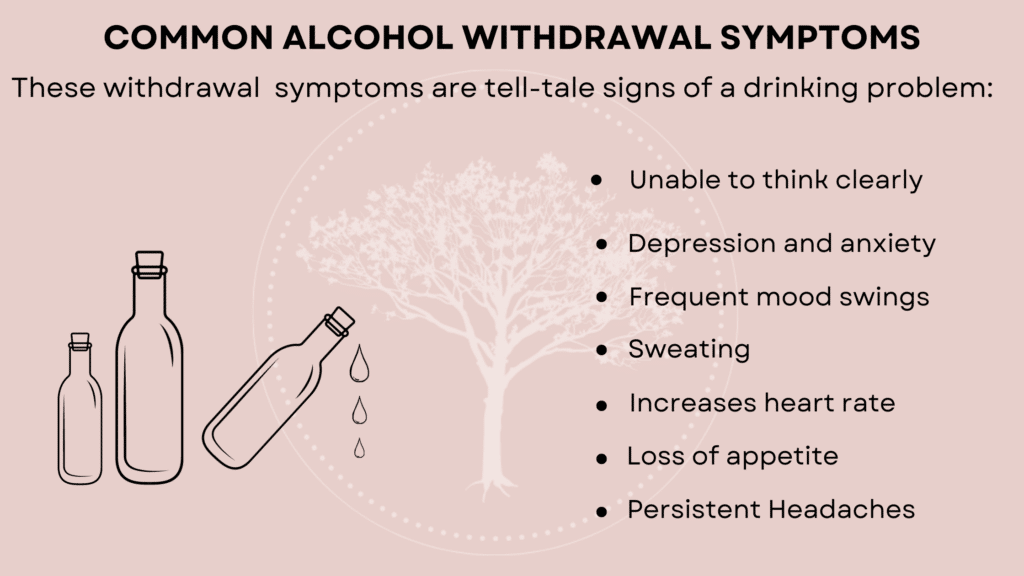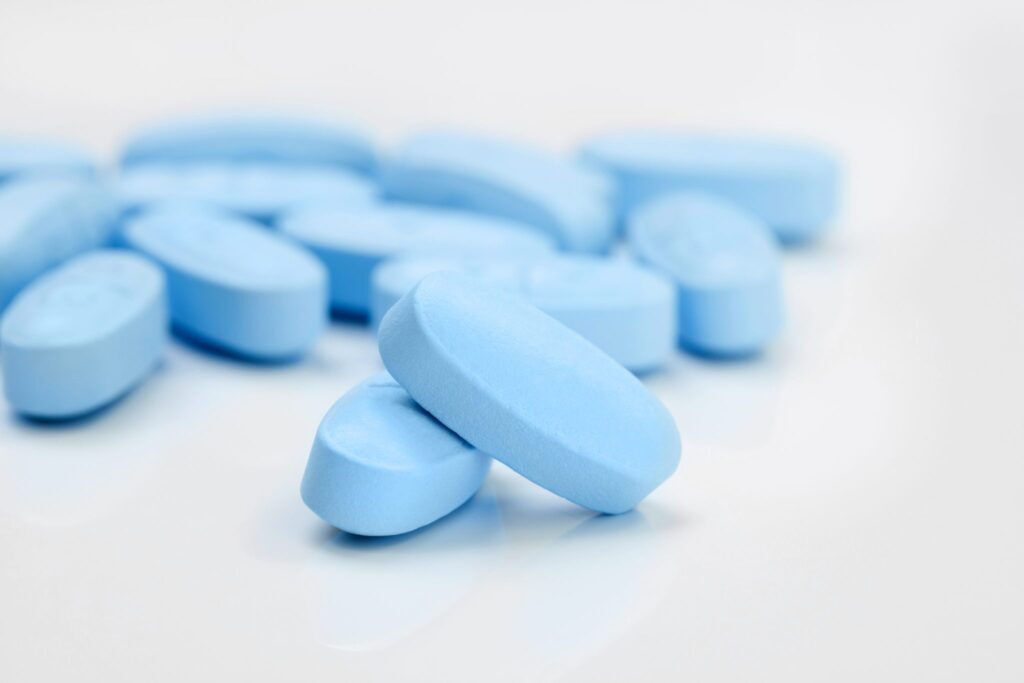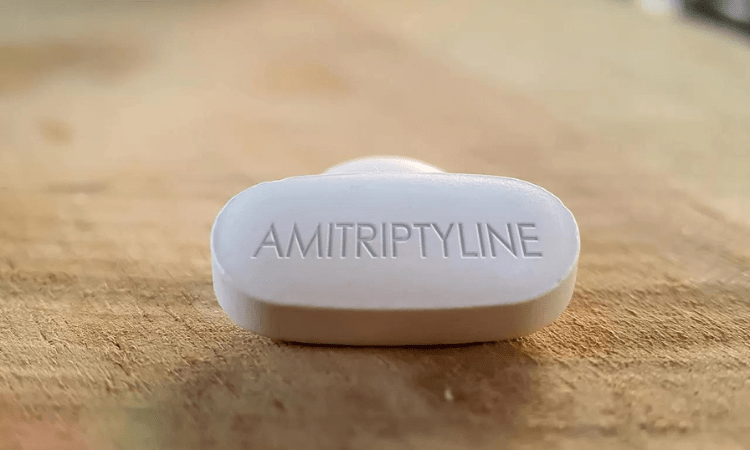Are you or someone you know struggling with alcohol withdrawal? It can be an overwhelming and challenging experience, both physically and emotionally. Understanding the withdrawals symptoms from alcohol is crucial to ensure your well-being during this process. In this comprehensive guide, we will delve into the physical and emotional withdrawal symptoms associated with alcohol use disorders.
Physically, alcohol withdrawal can manifest in a variety of ways. These symptoms range from mild to severe and can include nausea, sweating, shaking, and headaches. Emotionally, individuals may experience mood swings, anxiety, irritability, and even depression. It’s essential to recognize that these symptoms can vary from person to person, and seeking professional help is highly recommended to ensure a safe and effective recovery.
In this article, we will explore the different stages of alcohol withdrawal, potential complications, and the importance of seeking medical support. Armed with this knowledge, you will be better equipped to navigate the challenges of alcohol withdrawal and embark on your path to recovery of drinking alcohol. Also, get to know more about alcohol withdrawal syndrome. So, let’s dive in and gain a comprehensive understanding of the physical and emotional withdrawal symptoms from alcohol.
What is alcohol withdrawal?
Alcohol withdrawal syndrome is what happens when someone suddenly cuts back or quits drinking after a long period of heavy alcohol use. It brings on a mix of physical and mental symptoms, which can vary from not-so-bad to really tough, and sometimes even dangerous. It’s crucial to understand that experiencing alcohol withdrawal means your body has become dependent on alcohol, and it’s not something to shrug off.
What are the Physical Symptoms of Alcohol Withdrawal?
Alcohol withdrawal can show up with a range of physical symptoms, which can go from being not too bothersome to quite severe. Keep in mind that these symptoms differ from one individual to another, and they depend on things like how long and how intensely a person has been drinking. Some common physical withdrawal symptoms include:
- Nausea and Vomiting: Many individuals experience nausea and vomiting during alcohol withdrawal. This can be a result of the body’s reaction to the sudden absence of alcohol, as well as the body’s attempt to rid itself of toxins. These symptoms can be quite uncomfortable and may require medical intervention to manage.
- Sweating and Tremors: Sweating and shaking are common physical manifestations of alcohol withdrawal. The body’s attempt to regulate itself without alcohol can lead to excessive sweating and uncontrollable tremors. These symptoms can be distressing and may require medical attention to alleviate.
- Headaches and Muscle Pain: Headaches and muscle pain are often reported during alcohol withdrawal. These symptoms can range from mild to severe and can be a result of the body’s adjustment to the absence of alcohol. Proper hydration and pain management techniques can help alleviate these discomforts.
It’s important to remember that these physical symptoms can be managed with proper medical support and intervention. Seeking professional help is highly recommended to ensure a safe and effective recovery.
What are the Emotional Symptoms of Alcohol Withdrawal?
In addition to the physical symptoms, alcohol withdrawal can also lead to a variety of emotional symptoms. These symptoms can range from mood swings to more severe mental health issues. It’s crucial to address these emotional symptoms alongside the physical symptoms for a holistic recovery. Some common emotional withdrawal symptoms include:
- Mood Swings: Alcohol withdrawal can trigger rapid changes in mood, making individuals more susceptible to irritability, anger, and frustration. These mood swings can be challenging to manage and may require support from loved ones and mental health professionals.
- Anxiety and Restlessness: Feelings of anxiety and restlessness are prevalent during alcohol withdrawal. The brain’s chemistry is adjusting to the absence of alcohol, which can lead to heightened anxiety and a sense of unease. Learning healthy coping mechanisms and seeking professional help can greatly alleviate these symptoms.
- Depression and Fatigue: Some individuals may experience symptoms of depression and fatigue during alcohol withdrawal. The brain’s reward system is disrupted during this process, leading to feelings of sadness, hopelessness, and low energy levels. It’s crucial to address these symptoms promptly and seek professional help.
Understanding these emotional symptoms is essential for individuals going through alcohol withdrawal and their loved ones. Emotional support and mental health resources are invaluable during this challenging time.
How is alcohol withdrawal diagnosed?
Typically, alcohol withdrawal is identified in a hospital or rehab setting, where individuals seek assistance either for detoxification or due to the emergence of critical withdrawal symptoms. Healthcare professionals often employ a diagnostic tool known as the Clinical Institute Withdrawal Assessment of Alcohol Scale, or CIWA-Ar, to gauge the intensity of a person’s withdrawal symptoms. This scale evaluates various indicators such as queasiness, hallucinations, and anxiety.
Additionally, your healthcare provider may perform a physical examination to assess the severity of your withdrawal symptoms. This examination may involve checking for indications of dehydration, an accelerated or irregular heart rate, fever, and other relevant factors.
How long do withdrawal symptoms from alcohol last?
The timeline of alcohol withdrawal symptoms can vary depending on the individual and the severity of their alcohol dependence.
Generally, withdrawal symptoms can begin as early as a few hours after the last drink and may persist for several weeks. It’s essential to familiarize yourself with the typical timeline of alcohol withdrawal to better understand what to expect.
The timeline can be divided into three stages:
Stage 1: Early Withdrawal (6-12 hours)
During this stage, individuals may experience anxiety, insomnia, and gastrointestinal discomfort. This is the initial withdrawal phase, and symptoms are usually mild to moderate.
Stage 2: Peak Withdrawal (24-72 hours)
This stage is characterized by the most intense withdrawal symptoms. Symptoms may include an increased heart rate, high blood pressure, tremors, and hallucinations. Medical supervision is crucial at this stage to ensure safety.
Stage 3: Post-Acute Withdrawal (weeks to months)
During this stage, individuals may experience lingering symptoms such as fatigue, mood swings, and difficulty concentrating. This phase can last for several weeks or even months, but the intensity of symptoms gradually decreases over time.
It’s important to note that these timelines are general guidelines, and individual experiences may vary. It is always a good idea to seek medical help as soon as possible to ensure your recovery is as safe as possible.
What are some mild withdrawal symptoms from Alcohol?
While the timeline of alcohol withdrawal can vary, there are some mild symptoms from alcohol that many individuals experience during the process. These symptoms include:
- Anxiety
- Irritability
- Restlessness
- Insomnia
- Nausea
- Sweating,
- Increased heart rate
- High blood pressure
- Tremors
- Hallucinations
- Confusion
- Seizures
- Mood swings
- Fatigue, and
- Difficulty concentrating.
It’s important to remember that not everyone will experience all of these symptoms, and the severity may differ from person to person.

Severe Withdrawal Symptoms and Complications
While most individuals going through alcohol withdrawal experience mild to moderate symptoms, some may develop severe withdrawals symptoms from alcohol that can be life-threatening if left untreated. It’s crucial to recognize the signs of severe withdrawal and seek immediate medical attention. Some severe withdrawal symptoms and complications include:
- Delirium Tremens (DTs): Delirium Tremens is a severe form of alcohol withdrawal that typically occurs 48 to 72 hours after the last drink. Symptoms can include severe confusion, hallucinations, rapid mood changes, energy bursts, Grand Mal seizures, agitation and high blood pressure. DTs require emergency medical care and hospitalization.
- Seizures: Seizures can occur during alcohol withdrawal, particularly during the peak withdrawal stage. These seizures can be dangerous and necessitate immediate medical intervention. Medical professionals can provide appropriate medications to manage and prevent seizures during this time.
- Wernicke-Korsakoff Syndrome : This is a severe neurological disorder often associated with long-term alcohol abuse. It is characterized by confusion, memory loss, and difficulty with coordination. Proper medical treatment and nutritional support are crucial for individuals with this syndrome.
Understanding the potential complications of alcohol withdrawal helps underscore the importance of seeking professional help and medical supervision to ensure a safe recovery.
Factors That Affect the Severity of Alcohol Withdrawal Symptoms
Alcohol Withdrawal Symptoms: Severity Influenced by Multiple Factors
Several factors can influence the severity of alcohol withdrawal symptoms, including:
- Drinking heavily: Individuals who have been consuming alcohol for an extended period and in large quantities are more likely to experience severe withdrawal symptoms.
- Health problems: Individuals with underlying health conditions, such as liver disease, cardiovascular disease, and mental health disorders, may be more susceptible to severe withdrawal symptoms.
- People recover: People who have recovered from alcohol addiction may also be at risk of severe withdrawal symptoms, as their central nervous system may have been permanently altered by repeated withdrawal experiences.
The hand tremors are one of the most common signs of alcohol withdrawal. These factors can also affect how severe hand tremors are. Additionally, the duration and intensity of alcohol use, previous withdrawal experiences, and the presence of other central nervous system disorders can all play a role in the severity of hand tremors during alcohol withdrawal.
If you are experiencing alcohol withdrawal symptoms, it is important to seek medical attention. A medical professional can assess the severity of your symptoms and develop a treatment plan to help you manage them safely.
Medical Treatment for Alcohol Withdrawal
Seeking medical treatment for alcohol withdrawal is crucial for a safe and effective recovery. Healthcare professionals can provide the necessary support and interventions to manage withdrawal symptoms from alcohol and prevent complications. Some common medical treatments for alcohol withdrawal include:
- Medication-Assisted Treatment (MAT): Medications used in MAT, such as benzodiazepines and anticonvulsants may be prescribed to manage withdrawal symptoms from alcohol and prevent seizures. These medications help alleviate physical discomfort and reduce the risk of life-threatening complications. Medication-assisted treatment programs can be a big help for folks who want to kickstart their journey to recovery. One of the standout advantages is that they significantly cut down the necessity for inpatient rehab among people who rely on medication to aid in detox. These meds work kinda like opioids, but they don’t mess with your mind. So, a doctor can prescribe the right amount and gradually help someone safely kick the drug, making it less likely they’ll have to deal with super tough withdrawal and detox symptoms.
- Detoxification Programs: Inpatient or outpatient detoxification programs provide a controlled environment for individuals going through alcohol withdrawal. The benefits of IOP will include group counseling and therapy, individual counseling, psychoeducational programming, pharmacotherapy, and medication management. These programs offer medical supervision, support, and counseling to ensure a safe and successful detoxification process.
- Counseling and Therapy: Mental health support is an integral part of alcohol withdrawal treatment. Counseling and therapy can help individuals address underlying emotional issues and develop healthy coping mechanisms to prevent relapse.
There is no one-size-fits-all when it comes to alcohol withdrawal treatment. Consulting with healthcare professionals is essential to determine the most appropriate treatment plan.
Supporting Someone Going Through Alcohol Withdrawal
If you have a loved one going through alcohol withdrawal, providing support and understanding is crucial. Here are some ways you can support them during this challenging time:
- Educate Yourself: Learn about alcohol withdrawal symptoms and the recovery process. Understanding what your loved one is going through can help you provide better support.
- Offer Emotional Support: Be patient, empathetic, and understanding. Encourage open communication and provide a non-judgmental space for your loved one to express their feelings.
- Encourage Professional Help: Encourage your loved one to seek professional help. Assure them that seeking medical support is not a sign of weakness but a necessary step towards recovery.
- Assist with Practical Support: Help with daily tasks and responsibilities to alleviate stress and create a supportive environment for your loved one.
Remember, supporting someone through alcohol withdrawal can be emotionally demanding. Prioritize your own mental health and seek support from professionals if needed. This support will help you stop drinking too much and give you ways to enjoy your life without heavy drinking.
Conclusion
Withdrawal symptoms from alcohol can be a challenging and overwhelming experience, both physically and emotionally. Understanding the physical and emotional withdrawal symptoms associated with alcohol is crucial for a safe and successful recovery. By recognizing the symptoms, seeking professional help, and providing support to those going through alcohol withdrawal, individuals can embark on their path toward a healthier and happier life. Remember, recovery is possible, and seeking help is the first step towards a brighter future.
Please note that while this article provides valuable information, it is not a substitute for professional medical advice. If you or someone you know is struggling with alcohol withdrawal, please consult Relevance Recovery for proper guidance and treatment.









